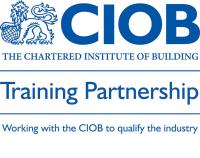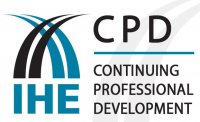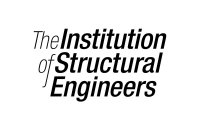This two-day course is designed to assist those on site who have responsibility for managing all forms of temporary works. It is also designed to give confidence to senior management and those who engage contractors,to reach an assessed standard of knowledge. The course has the support of a number of organisations: Temporary Works Forum CECA, UKCG, HSE and FMB.

Overview:
“Co-ordinating the temporary works process”
Temporary works are usually safety and business-critical and require careful co-ordination. An accepted way of achieving this is through the adoption of the management process outlined in BS5975, which introduces the temporary works co-ordinator (TWC) as a key figure. This course explains the role and the overall management context within which it sits.
High risk can occur on small as well as larger sites hence understanding the essentials of good safety risk management, as outlined in BS5975, is relevant for projects of all sizes. This course will give the delegate thorough knowledge of the Temporary Works Co-ordinator role however this does not alone make a delegate competent, as this requires other attributes e.g. experience.
Aims & Objectives:
This course is not a temporary works awareness course. It is only concerned with the process of co-ordination of temporary works, commonly expressed through the role of the Temporary Works Co-ordinator. Attendance does not confer competency as a Temporary Works Co-ordinator.
The course gives emphasis throughout to:
- The importance of communication, co-ordination, co-operation and competency (the 4Cs)
- Risk management: safety and also business related
Allowing the Temporary Works Co-ordinator (TWC) to:
- Understand the need for and duties of a TWC and roles of others
- Implement the '4C's' effectively in the workplace
- Have a detailed knowledge and understanding of BS5975
Course Outline:
- Why temporary works is important
- Safety Critical: legal requirements
- Business Critical
- Roles - Client, Contractors, Designers (permanent works and temporary works, APs, TWCs, TWSs, DI
- Contract and statute
- Bragg
- BS 5975:2019 +A1:2011 overview
- Other relevant codes
- Case examples of failure
Statutory aspects of:
- Inspections
- Stability (above and below ground)
- Design (scaffold)
- People - Competence (corporate and individual)
- Process
- Clarity of responsibility
- Procurement
- Identifying site-wide issues and planning ahead
- Design and checks
- Installation
- Use
- Maintenance
- Product
- Standard solutions
- Condition
- Sourcing
- Appointment
- Role
- TWS interface and role
- Basis of good management
- Administration: benefit of good temporary works systems
- The Register
- Excavations
- Falsework
- Formwork
- Earthwork
- Working Platforms & Haul Roads
- Cranes (Tower, Crawler & Mobile)
- Scaffolding
- Pressure Testing
- Site Establishment
- Demolition
8. Examination
9. Course review / closure
Mode of Delivery:
Delegates must attend the days in order and, where not on consecutive days, must complete the course within two weeks. Delegates unable to attend both days due to extenuating circumstances (e.g. certificated sickness) will need to enrol onto a new course in order to maintain continuity of learning outcomes and attend both days again.
Intended For:
It is expected that experienced and competent Temporary Works Co-ordinators will attend this course. Competence comes from a mixture of education, training and experience and should be judged by an appropriate senior individual, usually referred to as the Designated Individual (DI). Training is considered an essential element of Temporary Works Co-ordinator competence.
Pre-Course Requirements:
This course including its group work and exercises is constructed around BS5975:2008 +A1:2011. For Open Courses Delegates should ideally bring a copy with them in order not to be significantly disadvantaged. For in-house courses it is expected that the Tutor will tailor the course around the organisation procedures providing they are comprehensive and follow the philosophy of BS5975. In these cases delegates will need a copy of their own procedures. In the absence of adequate procedures delegates will need a copy of the BS itself.









